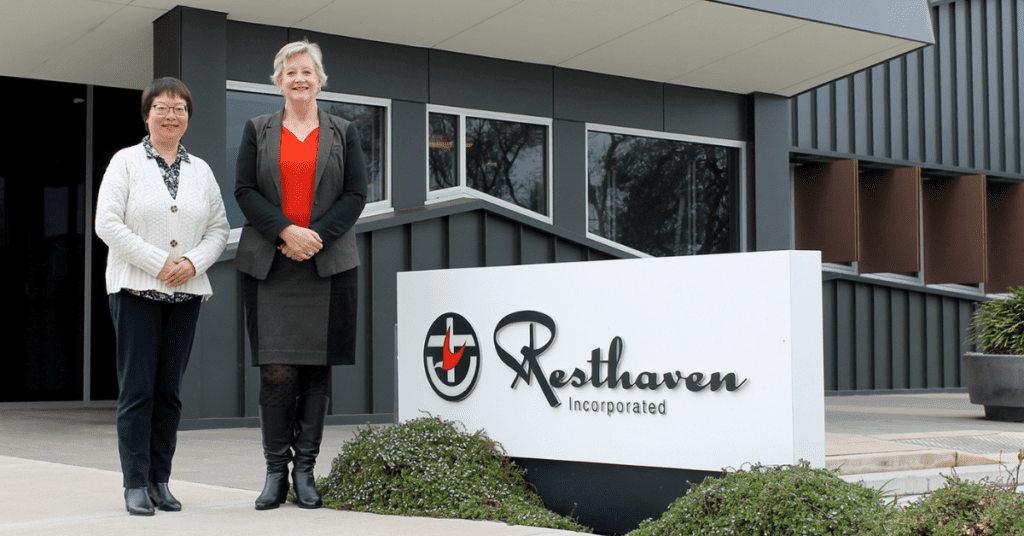
Phase 1 of the iSupport dementia study complete
The World Health Organisation (WHO) iSupport for Dementia online training program is being adapted for the Australian context.
The current iSupport study is the first large randomised controlled trial of a complex intervention on health and social care services with carers of people living with dementia in real-world practice across hospital and community aged care settings in three Australian states.
Resthaven Executive Manager, Community Services, Sue McKechnie says, ‘Having been involved in the original pilot study in 2019–20, Resthaven is pleased to continue our partnership with Flinders University and Prof Lily Xiao for all three phases of this large, evidence-based, research into online dementia education and skills training program for family carers.’
‘The study aims to evaluate the effectiveness, cost-effectiveness and family carers’ experiences in the program, address gaps and strengthen proactive health management for people with dementia and their family carers.’
Consisting of three phases, the study emphasises a holistic approach to identify interventions with stakeholders (Phase 1), test evidence-based care services (Phase 2) and translate knowledge into practice in a real-world setting (Phase 3).
‘The program involves a set of online education modules for carers to help them understand what dementia is, how it impacts a person, and how carers can better support themselves and the person they care for,’ Sue explains.
‘The content targets the learning needs of carers throughout the whole trajectory of their journey.’
‘iSupport uses techniques such as cognitive behavioural therapy to help carers develop positive thoughts, problem-solving and coping skills, self-care and assertiveness when seeking help from relatives, friends and formal care service providers.’
The program involves five interventional components—managing transitions, managing dementia progression, psychoeducation, carer support group and feedback on services.
In Phase 1, the research team worked with family carers and care service providers to co-design an innovative and complex intervention delivered by iSupport program facilitators.
Resthaven Project Officer and iSupport program facilitator, Tanae Ormsby, says ‘I have thoroughly enjoyed Phase 1 of this project as it’s given me a better understanding of what support carers value the most.’

Phase 2 involves completing a randomised control trial.
‘With phase 2 now underway, we will be actioning those supports to further strengthen carers in their role. I can already see the progress this is making in dementia research,’ Tanae said.
‘As part of Phase 3, it is envisaged that the ‘Partnership in iSupport program’ will be practised by participating organisations and the program will then be disseminated across the country.’
The study is funded by the Australian Government via the NHMRC/Medical Research Future Fund and NHMRC/The Dementia Centre for Research Collaboration (DCRC) World Class Research Project Grants.
To read more about the program, the open-access research article can be viewed here: https://rdcu.be/cPpYM.
